Muslim-friendly versions of popular anime dishes across Japan!
10 Unspoken Rules Every Muslim Traveller Should Know Before Visiting Japan
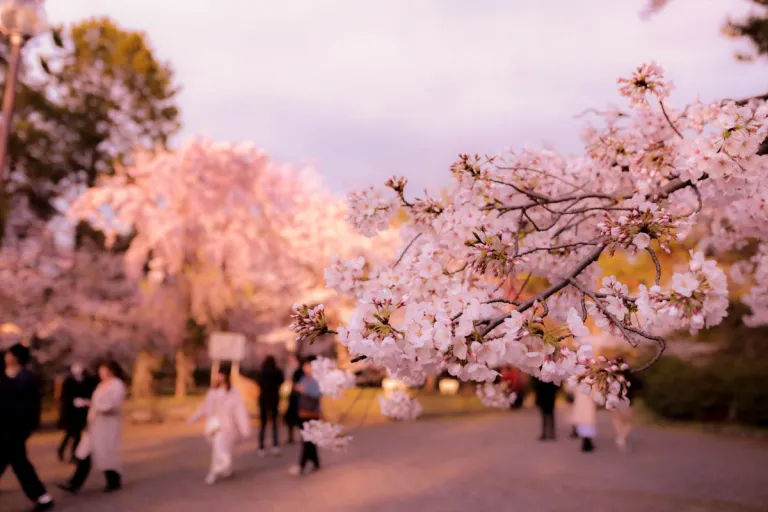
Japan is a dream destination for many travellers, offering a unique blend of modernity and tradition, stunning landscapes, and a rich cultural heritage. For Muslim travellers, navigating Japan’s customs and lifestyle may initially seem daunting. This guide provides an overview of the unspoken rules to ensure a respectful and enriching experience in the Land of the Rising Sun.
1. Respecting the art of queuing
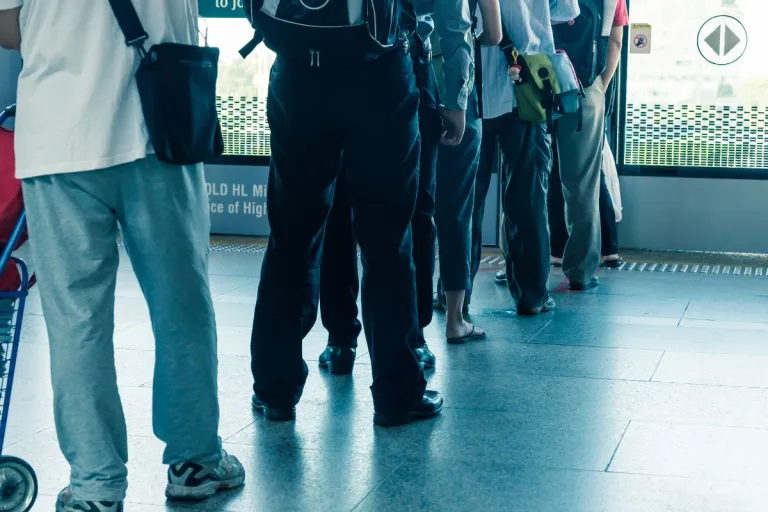 Image credit: TrongNguyen via Canva Pro
Image credit: TrongNguyen via Canva Pro
Also read: Best Halal Travel Guide 2025 For Japan
In Japan, queuing is an art form. Whether waiting for a train, bus, or even an elevator, orderly lines are the norm. Cutting in line is considered rude. Muslim travellers should be mindful of prayer timings while waiting in queues at busy spots, ensuring they can balance their schedules without feeling rushed.
2. Maintaining silence on public transport
 Image credit: Chris Putnam via Canva Pro
Image credit: Chris Putnam via Canva Pro
Public transport in Japan is typically silent. Talking loudly or making phone calls on trains and buses is a cultural faux pas. Travellers should keep conversations quiet to blend in. This peaceful atmosphere provides an opportunity for reflection or reciting quiet du’as while commuting.
3. Avoiding eating while walking
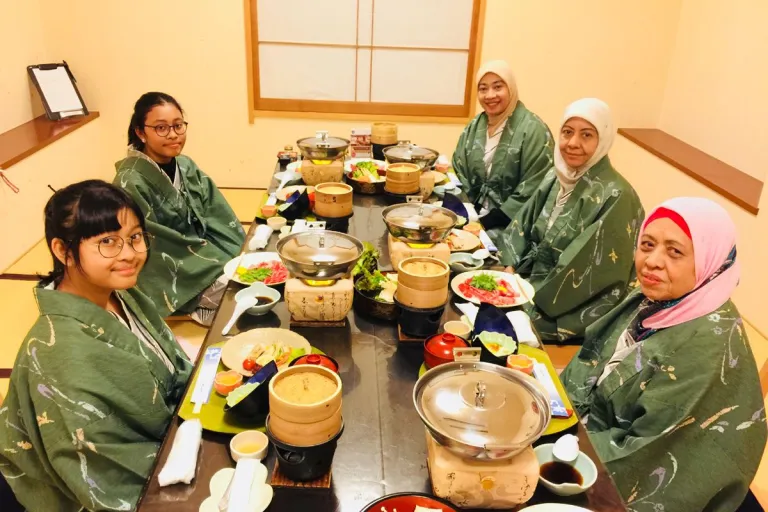 Image credit: Japan Oriental Tours | Official Website
Image credit: Japan Oriental Tours | Official Website
In Japan, eating while walking is considered impolite. Meals should be enjoyed while seated in designated areas, such as restaurants, cafes, or park benches. With the growing availability of halal eateries in Japan, travellers can plan their meals to avoid snacking while exploring.
4. Mastering chopstick etiquette
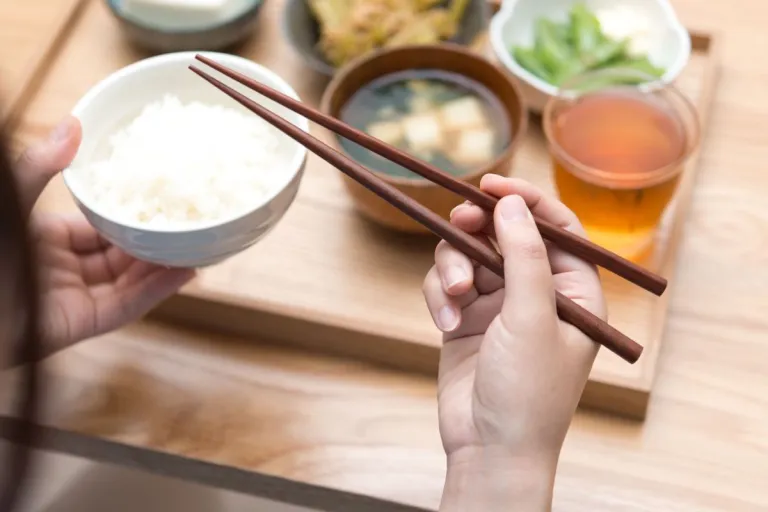 Image credit: japanhouse | Official Website
Image credit: japanhouse | Official Website
Chopstick use is an essential part of dining in Japan, and mishandling them can offend. Travellers should avoid sticking chopsticks upright in a bowl of rice, as this gesture is associated with funerals. Passing food from one set of chopsticks to another is also discouraged. Muslim travellers should also ensure their food is halal by politely inquiring about ingredients.
5. Respecting personal space
Despite its dense population, Japan places a high value on personal space. Even in crowded trains, physical contact is avoided as much as possible. If accidental contact occurs, a small bow or a polite "Sumimasen" (excuse me) is appreciated. This respect for boundaries can be particularly welcoming for Muslim women who wear the hijab.
6. Removing shoes indoors
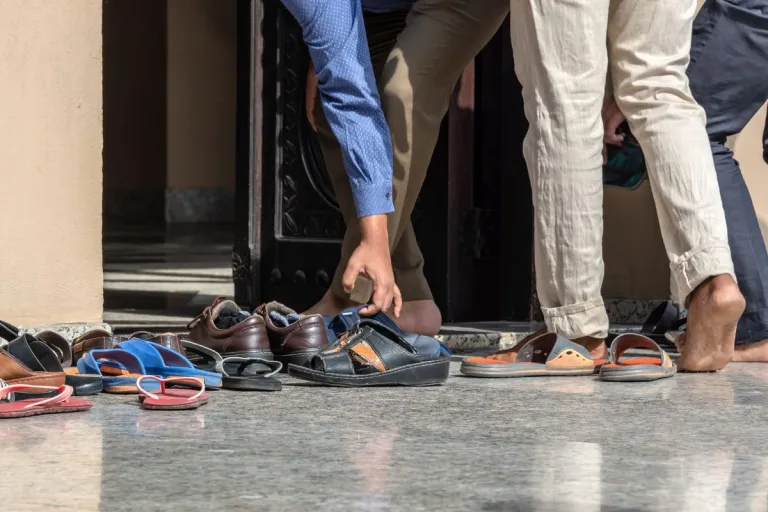 Image credit: Delpixart via Canva Pro
Image credit: Delpixart via Canva Pro
In Japan, shoes are removed before entering homes, in traditional accommodations (like ryokans), and in some restaurants. Shoe racks or slippers are usually provided. For Muslim travellers, this aligns with the emphasis on cleanliness in Islam, especially before prayer.
7. Handling trash properly
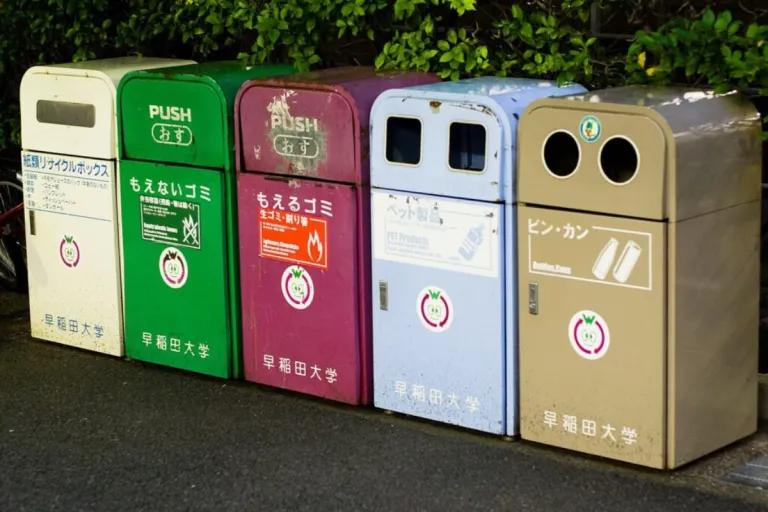 Image credit: Internship in Japan | Official Website
Image credit: Internship in Japan | Official Website
Public trash cans are rare in Japan, requiring travellers to carry their garbage until they find a suitable disposal location. Recycling is taken seriously, with waste sorted into burnable, non-burnable, and recyclable categories. Muslim travellers should also maintain cleanliness when handling leftover food or drink containers.
8. Avoiding tipping
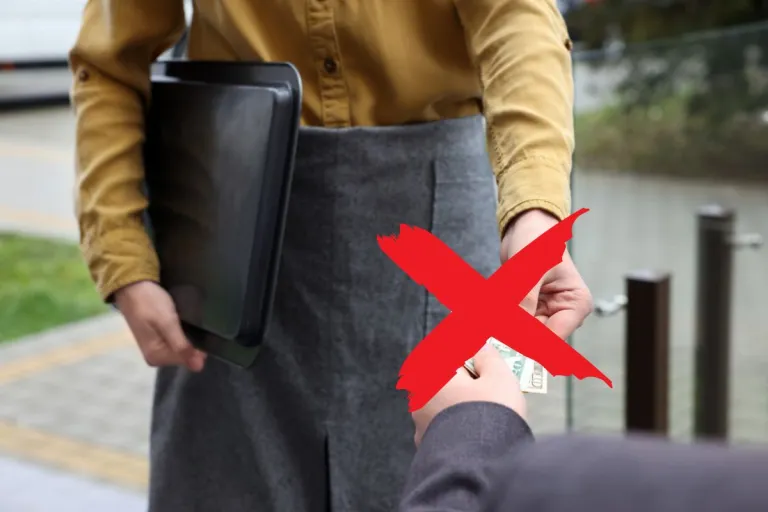 Image credit: Africa Images via Canva Pro
Image credit: Africa Images via Canva Pro
Tipping is not customary in Japan and may confuse or offend service staff. Exceptional service is already a given, so gratitude is best expressed with a polite "Arigatou gozaimasu" (thank you very much). This practice can be refreshing for travellers on a budget while searching for halal food or souvenirs.
9. Embracing the art of bowing
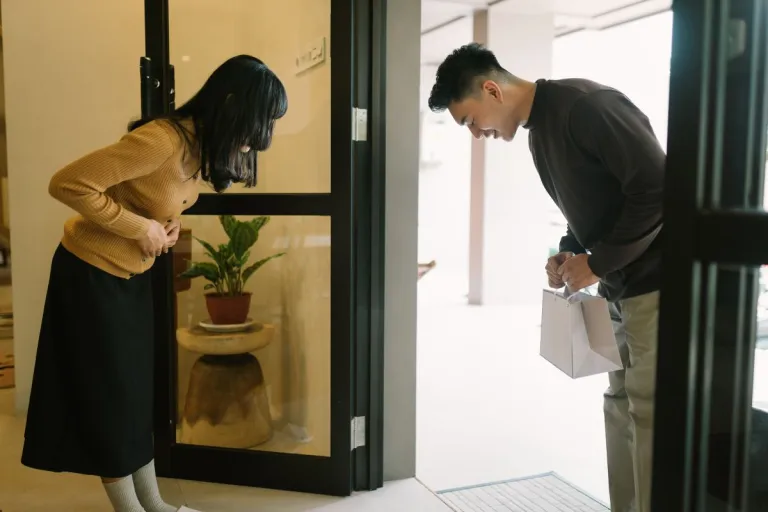 Image credit: Rizky Sabriansyah via Canva Pro
Image credit: Rizky Sabriansyah via Canva Pro
In Japan, bowing is the ultimate sign of respect, replacing handshakes in many interactions. Whether expressing gratitude, greeting someone, or apologising a small bow is appreciated. For Muslim travellers, bowing can be a meaningful way to reciprocate the respect shown to them.
10. Understanding Onsen (hot spring) etiquette
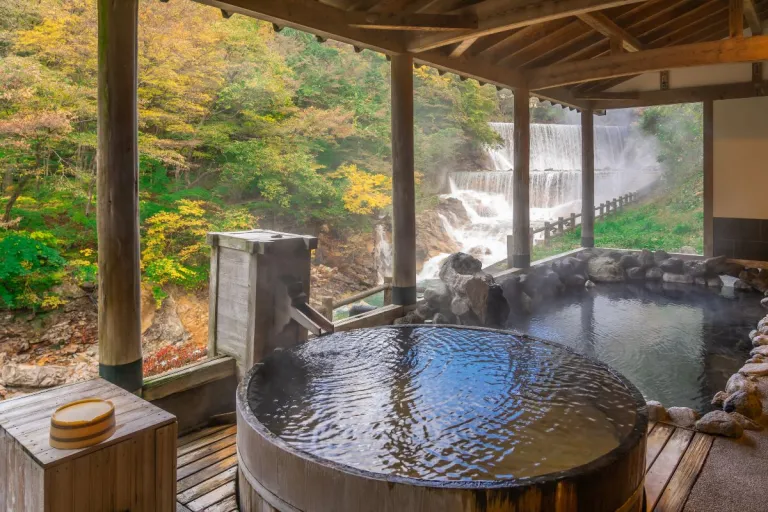 Image credit: pisitkhambubpa via Canva Pro
Image credit: pisitkhambubpa via Canva Pro
Also read: Cherry Blossom Season in Japan: Top Places And Dates to Visit in 2025
Visiting an onsen is a quintessential Japanese experience, but strict etiquette must be observed. Showering thoroughly before entering the communal bath is essential, as cleanliness is paramount. Travellers should note that tattoos may not be allowed in some onsens due to cultural perceptions. Private onsen facilities can offer Muslim travellers a more modest and comfortable experience.
Bonus Tips for Muslim Travellers
Japan is increasingly accommodating to Muslim travellers, offering a variety of facilities to make their visit more convenient. Halal-certified restaurants, mosques, and prayer rooms can now be found in major cities and airports. Travellers can use apps like HalalZilla or Halal Navi to locate these amenities with ease. Additionally, politeness and gratitude are integral aspects of Japanese culture. Simple phrases such as "thank you" ("Arigatou gozaimasu") and "excuse me" ("Sumimasen") go a long way in showing respect and fostering positive interactions. To bridge cultural gaps, learning a few basic Japanese phrases can be incredibly helpful. Asking, "Is this halal?" ("Kore wa halal desu ka?") can ensure travellers adhere to their dietary requirements while engaging with locals.
By following these unspoken rules, Muslim travellers can fully appreciate the beauty and hospitality of Japan while fostering mutual respect and understanding. Travelling is not just about seeing new places but also about connecting with people and embracing their way of life. May every journey be filled with barakah!
Published at
About Author
Aimi Zulkiflee
Subscribe our Newsletter
Get our weekly tips and travel news!
Recommended Articles
10 Halal Anime Food Guide for Muslim Travellers in Japan 10 Halal Logos in ASEAN That Every Muslim Traveller Needs to Know Look for these logos before you EAT!
10 Hidden Gems in Osaka Perfect For Muslim Travellers Food, culture, neon lights, history, friendly locals — OSAKA!
10 Muslim-Friendly Airbnbs in Sapporo, Japan 2025 Choose your mood for staycation now!
Beyond Sakura: 10 Muslim-Friendly Wisteria Spots in Japan 2025 Catch it between late April to Early May!
Latest Articles
The Ultimate Guide For Muslim Travellers to Great Wisteria Festival in Japan You can spot 160-year-old wisteria tree that covers 1,000 sq meters!
Mona Lisa Relocation 2031: What Muslim Travellers Should Know About the Louvre Makeover You can catch Mona Lisa’s smile in under 1 minute!
Penang Airport Launches MyBorderPass: Faster Immigration For 63 Countries Faster customs for 63 countries at Penang Airport!
Travel Alert: Beijing and Northern China Hit by Extreme Winds — Safety Tips Inside China warns people under 50kg to stay indoors amid strong wind alert!
Bali Sets New Rules For Foreign Tourists, Here's What You Need To Know Bali's new rules all foreign tourists need to know before your visit!

